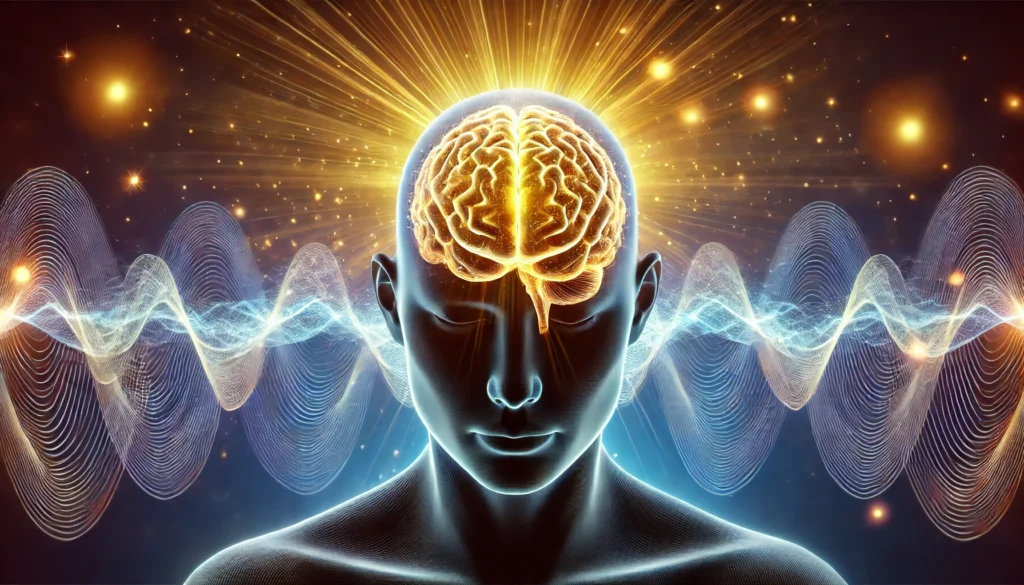Introduction: The Transformative Power of Meditation on the Brain
Meditation has long been practiced for its profound effects on mental clarity, emotional balance, and overall well-being. However, modern neuroscience has begun to uncover the intricate ways in which meditation affects brain activity, offering scientific validation to what practitioners have known for centuries. By examining meditation and the brain, researchers have discovered that this ancient practice has a direct impact on neuroplasticity, cognition, emotional regulation, and even aging processes.
You may also like : Best Things for Brain Health: Expert-Backed Strategies to Keep Your Mind Sharp
Understanding how meditation changes the brain allows us to appreciate its full potential in enhancing cognitive function, reducing stress, and fostering long-term neurological health. This article explores meditation effects on brain structure and function, detailing how this practice rewires neural pathways, strengthens gray matter density, and enhances overall brain performance. By delving into the science behind meditation brain activity, we will uncover how consistent meditation can lead to lasting cognitive and emotional benefits, making it an essential tool for brain health and longevity.
The Science of Meditation and Neuroplasticity
Neuroplasticity, the brain’s ability to reorganize and form new neural connections, is one of the most significant discoveries in modern neuroscience. The understanding that meditation and neuroplasticity are closely linked has opened new avenues for cognitive enhancement and mental health treatment. Meditation stimulates various regions of the brain, such as the prefrontal cortex, hippocampus, and amygdala, leading to measurable changes in brain structure and function. Studies utilizing functional MRI scans have demonstrated that individuals who engage in regular meditation experience increased cortical thickness, particularly in areas associated with attention and sensory processing. Furthermore, research has shown that meditation enhances synaptic density, promoting faster and more efficient neural communication. The question of how does meditation change the brain is best answered by looking at these physiological alterations, which contribute to improved memory, emotional resilience, and stress regulation.
Meditation and Cognitive Enhancement: Strengthening Memory and Focus
One of the most well-documented meditation benefits for brain function is its ability to improve focus, attention, and memory retention. Meditation encourages mindfulness, a state of heightened awareness and presence that directly impacts the brain’s attentional networks. Neuroscientific research has found that meditation increases activity in the anterior cingulate cortex, a region responsible for self-regulation and focus. This enhanced connectivity results in better cognitive control and the ability to sustain attention for longer periods. Additionally, meditation strengthens working memory by increasing hippocampal volume, which plays a crucial role in learning and information retention. The ability of meditation to counteract age-related cognitive decline makes it a valuable tool for maintaining brain health over the lifespan. Regular practice has been linked to improvements in executive function, problem-solving abilities, and creative thinking, demonstrating how meditation changes the brain to optimize intellectual performance.

Meditation’s Impact on Emotional Regulation and Stress Reduction
The relationship between meditation and the brain extends beyond cognitive enhancement, playing a critical role in emotional well-being. Meditation has been found to significantly reduce stress by decreasing activity in the amygdala, the brain’s fear center. Studies show that mindfulness meditation lowers cortisol levels, the primary stress hormone, leading to improved mood and emotional stability. Furthermore, meditation fosters greater emotional regulation by strengthening connections between the prefrontal cortex and limbic system, allowing individuals to process emotions more effectively. Those who practice meditation regularly exhibit lower levels of anxiety, depression, and emotional reactivity, indicating profound changes in neural pathways associated with mood regulation. By training the brain to respond to stress more adaptively, meditation cultivates a sense of inner peace and resilience, which can enhance overall quality of life.
How Meditation Slows Brain Aging and Supports Longevity
Aging naturally leads to cognitive decline, but research indicates that meditation can slow this process by preserving brain volume and function. Long-term meditators exhibit increased gray matter density, particularly in regions associated with memory and executive function. This preservation of neural structures suggests that meditation may play a protective role against neurodegenerative diseases such as Alzheimer’s and dementia. Additionally, meditation has been linked to longer telomere length, a biomarker of cellular aging. By reducing oxidative stress and inflammation—two primary contributors to brain aging—meditation supports neurological longevity. The question of how meditation changes the brain in the context of aging is answered through these findings, which highlight its ability to maintain cognitive vitality well into old age.
Meditation’s Effect on Brain Wave Activity and Conscious Awareness
Meditation induces distinct patterns of brain wave activity, demonstrating its influence on consciousness and cognitive states. EEG studies have revealed that meditation enhances alpha and theta wave activity, which are associated with deep relaxation, creativity, and heightened awareness. These changes in meditation brain activity suggest that the practice promotes a state of mental clarity and calm, reducing cognitive overload and enhancing mindfulness. Additionally, experienced meditators exhibit increased gamma wave activity, which is linked to higher-order thinking, self-awareness, and peak cognitive performance. By training the brain to enter these beneficial states, meditation fosters greater mental clarity and a profound sense of present-moment awareness.

Frequently Asked Questions: Meditation and Brain Activity
1. How does meditation affect brain function on a long-term basis?
Meditation affects brain function by promoting long-term changes in neural connectivity and structure. Research has demonstrated that sustained meditation practice enhances gray matter density in regions associated with memory, learning, and emotional regulation. Over time, these structural changes improve cognitive resilience, allowing individuals to process information more efficiently and manage stress with greater ease. Additionally, meditation enhances neuroplasticity, which enables the brain to adapt and reorganize neural pathways in response to new experiences. By fostering these long-term changes, meditation supports cognitive longevity and mental clarity well into old age.
2. What does meditation do to the brain’s stress response system?
One of the most profound ways meditation affects brain function is through its impact on the stress response system. The practice helps regulate activity in the amygdala, the region of the brain responsible for processing fear and stress. Studies show that regular meditation reduces the size and reactivity of the amygdala, leading to a more balanced emotional response to stressful situations. Additionally, meditation increases the activation of the prefrontal cortex, which governs rational thinking and emotional control. As a result, individuals who meditate consistently experience lower cortisol levels, enhanced resilience to stress, and improved emotional regulation.
3. How does meditation change the brain’s ability to focus and concentrate?
Meditation and the brain’s attentional networks are closely interconnected, with scientific evidence showing significant improvements in focus and concentration among regular practitioners. Meditation strengthens the anterior cingulate cortex, a region associated with sustained attention and cognitive control. As individuals engage in mindfulness-based practices, they train their brains to filter out distractions and maintain focus on a single task. This increased attentional control translates into greater productivity, improved academic performance, and enhanced problem-solving abilities. Additionally, meditation has been shown to improve reaction time and decision-making, further demonstrating its powerful influence on cognitive function.
4. How does meditation impact creativity and problem-solving skills?
Meditation benefits brain function by fostering divergent thinking and creative problem-solving. By enhancing connectivity between different regions of the brain, meditation encourages the free flow of ideas and novel associations. Studies have found that individuals who practice meditation regularly exhibit increased activity in the default mode network (DMN), which is linked to imagination and introspection. Additionally, meditation reduces cognitive rigidity, allowing for more flexible thinking and innovation. Many successful professionals and artists incorporate meditation into their routines to enhance their ability to generate new ideas and overcome creative blocks.
5. How does meditation influence sleep quality and brain restoration?
Meditation affects brain activity in ways that promote relaxation and improve sleep quality. By activating the parasympathetic nervous system, meditation helps lower heart rate, reduce muscle tension, and facilitate a state of deep relaxation. These physiological changes prime the brain for restful sleep, making it easier to fall asleep and stay asleep throughout the night. Additionally, meditation increases melatonin production, a hormone essential for regulating the sleep-wake cycle. Regular meditation practice has been linked to improvements in sleep duration, sleep efficiency, and overall sleep satisfaction, making it a natural remedy for insomnia and sleep disturbances.
6. Can meditation help protect the brain from age-related decline?
Meditation and neuroplasticity play a crucial role in slowing the progression of age-related cognitive decline. Research has shown that experienced meditators exhibit higher gray matter volume in key brain regions associated with memory and executive function. This suggests that meditation may help protect against conditions such as Alzheimer’s disease and dementia. Additionally, meditation reduces chronic inflammation and oxidative stress—two factors that contribute to brain aging. By preserving cognitive function and promoting mental agility, meditation serves as a powerful tool for maintaining neurological health as we age.
7. What are the effects of meditation on emotional intelligence and social relationships?
Meditation affects brain function in ways that enhance emotional intelligence and interpersonal relationships. Mindfulness-based practices increase activity in the insula, a brain region involved in empathy and self-awareness. As individuals become more attuned to their emotions and thought patterns, they develop greater emotional regulation and the ability to respond to others with compassion. Meditation has also been linked to increased levels of oxytocin, the “bonding hormone,” which fosters feelings of connection and trust. These changes contribute to stronger relationships, improved communication skills, and a greater sense of social belonging.
8. How does meditation impact brain wave activity?
Meditation brain activity is characterized by distinct changes in brain wave patterns. EEG studies have shown that meditation enhances alpha and theta wave activity, which are associated with relaxation, creativity, and deep focus. These brain wave changes contribute to a state of calm alertness, allowing for improved cognitive flexibility and stress resilience. Additionally, advanced meditators exhibit increased gamma wave activity, which is linked to heightened awareness, peak cognitive performance, and spiritual insight. By training the brain to enter these beneficial states, meditation promotes optimal mental functioning and a greater sense of well-being.
9. Can meditation improve learning and information retention?
Meditation benefits brain function by enhancing learning capacity and information retention. The practice has been shown to increase hippocampal volume, which is essential for memory formation and spatial navigation. Additionally, meditation improves synaptic efficiency, allowing for faster and more effective communication between neurons. Students and professionals who integrate meditation into their daily routines often report better comprehension, faster recall, and greater mental clarity. By fostering a receptive and focused mind, meditation optimizes learning potential and supports intellectual growth.
10. How does meditation support mental resilience and adaptability?
One of the most significant ways meditation affects brain function is by cultivating mental resilience and adaptability. By strengthening connections between the prefrontal cortex and the limbic system, meditation enhances emotional stability and cognitive flexibility. This enables individuals to navigate life’s challenges with greater ease and confidence. Meditation also fosters a mindset of acceptance and non-judgment, allowing practitioners to respond to adversity with a sense of calm and perspective. Over time, these mental shifts lead to increased psychological well-being and a greater capacity to thrive in the face of change.

Conclusion: Harnessing the Power of Meditation for Brain Health
The scientific exploration of meditation and the brain has unveiled remarkable insights into how this ancient practice can enhance cognitive function, emotional resilience, and overall neurological well-being. By understanding how meditation affects brain activity, we recognize its potential as a tool for optimizing mental performance and promoting longevity. The effects of meditation on neuroplasticity, memory, emotional regulation, and stress reduction provide compelling evidence for its role in brain health. As more research emerges, the integration of meditation into daily life becomes increasingly justified, offering individuals a natural and effective means to improve brain function and overall quality of life. Embracing meditation as a lifelong practice can lead to profound and lasting benefits, making it a cornerstone of cognitive enhancement and anti-aging strategies.
mindfulness meditation benefits, brain health improvement, cognitive function enhancement, emotional resilience techniques, neuroplasticity training, stress management strategies, meditation for mental clarity, focus and concentration techniques, brain wave modulation, meditation and emotional intelligence, relaxation and brain function, mind-body connection practices, meditation for cognitive longevity, meditation and aging brain, self-awareness exercises, brain training with meditation, meditation and neurogenesis, mindfulness and memory improvement, meditation for anxiety reduction, neural pathways and meditation
Further Reading:
Meditation and its Impact on the Nervous System
The neuroscience of mindfulness meditation
Disclaimer
The information contained in this article is provided for general informational purposes only and is not intended to serve as medical, legal, or professional advice. While Health11News strives to present accurate, up-to-date, and reliable content, no warranty or guarantee, expressed or implied, is made regarding the completeness, accuracy, or adequacy of the information provided. Readers are strongly advised to seek the guidance of a qualified healthcare provider or other relevant professionals before acting on any information contained in this article. Health11News, its authors, editors, and contributors expressly disclaim any liability for any damages, losses, or consequences arising directly or indirectly from the use, interpretation, or reliance on any information presented herein. The views and opinions expressed in this article are those of the author(s) and do not necessarily reflect the official policies or positions of Health11News.


